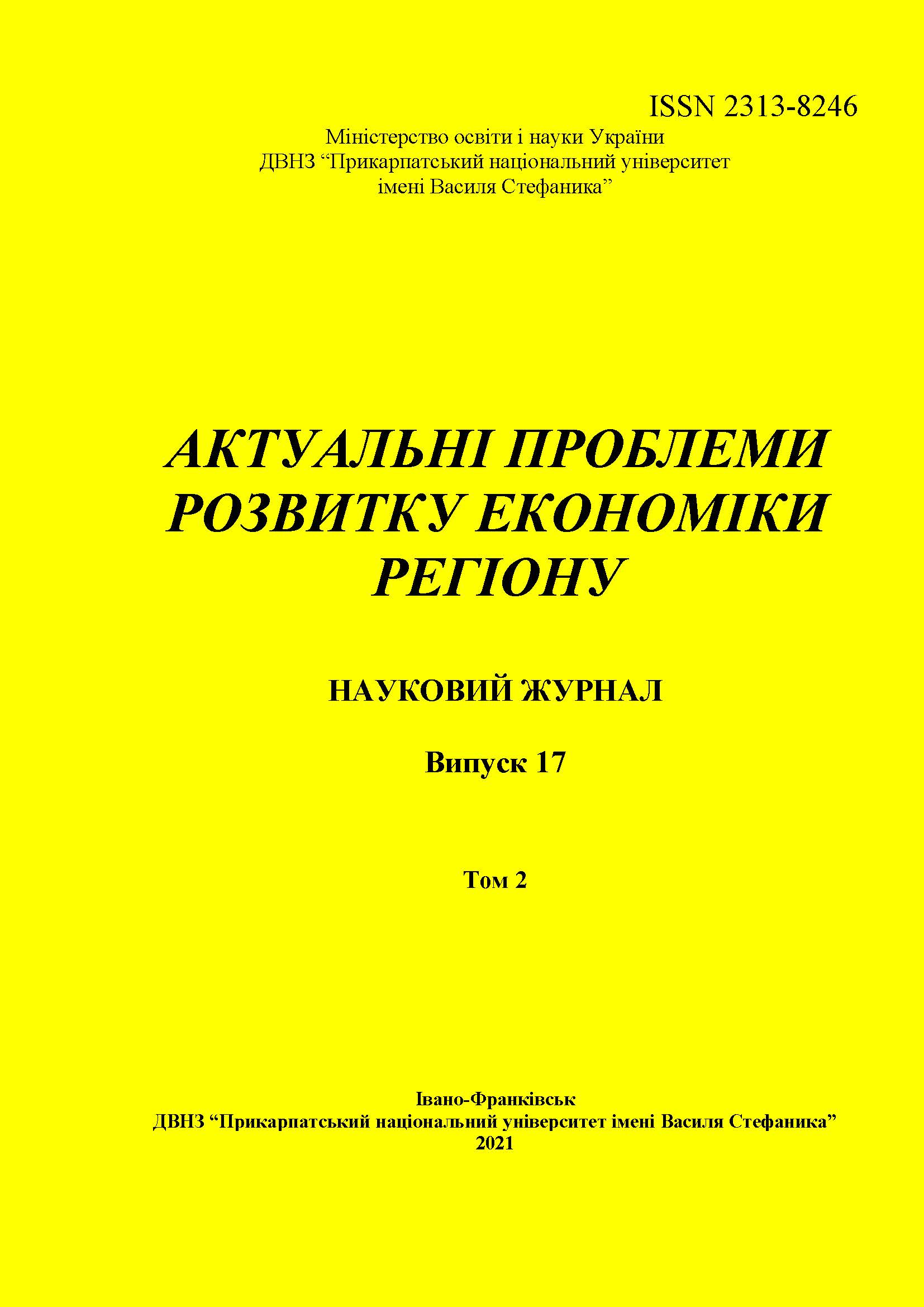TOURIST INDUSTRY OF UKRAINE IN THE CONTEXT OF MODERN INTEGRATION PROCESSES
DOI:
https://doi.org/10.15330/apred.2.17.167-178Keywords:
tourism industry, tourism potential, international tourism, competitiveness, integrationAbstract
Article is devoted to the research of the tourism industry of Ukraine in the context of modern integration processes. In today's world, tourism is a catalyst for the social and economic development of the country, has a great influence on such key areas as trade, transport, communications, construction and many others. For many countries around the world, tourism is an essential tool, and often functions as a source of income in the country's economy, an effective tool for creating a favorable investment climate and a positive image of the state. The preconditions of Ukraine for effective development of inbound and domestic tourism have been generalized: favorable climate, advantageous geographical position and relief, rich natural, tourist and recreational and cultural-historical potential. A SWOT analysis of the development of Ukrainian tourism is presented, which allows us to conclude that Ukraine objectively has tourism potential and opportunities for its development, but at the moment it is not used effectively by the country. The competitive advantages of the tourism industry of Ukraine are analyzed, detailed analysis of this industry is carried out. It makes sense that increasing the competitiveness of the tourism sector should become the key tasks of the modern Ukrainian economy. It is important to focus on creating an attractive image of Ukraine in the international market as a country that can provide tourists not only with access to cultural and natural sites, but also security, comfortable living and travel conditions, balanced pricing policy, high standards of hospitality. At the same time, there is a need to constantly work on improving their own tourism product and its competitiveness.
The impact of the pandemic on the development of tourism is considered and the need to organize and develop all tourist destinations and resources, which will contribute to the further social and economic development of both external and domestic tourism. It is substantiated that taking certain measures to overcome the pandemic and further improve the market economy in all areas of activity, including tourism, is necessary.
References
2. Bogatiuk, I. “Recreational Territories in Ukraine: the State and Perspectives of the Development.” Bulletin of the Academy of Labor and Social Relations of the Federation of Trade Unions of Ukraine. Series: Law and Public Administration, no.4, 2011, infotour.in.ua/bogatjuk.htm/ Accessed 15 Oct. 2021.
3. Dudchenko, N., and O. Lyubitseva. “Analysis of the dynamics of the global index of tourism competitiveness in Ukraine.” Collection of scientific works ΛΌГOΣ. https://doi.org/10.36074/11.12.2020.v1.12 Accessed 15 Oct. 2021.
4. “Tourism in Ukraine.” Worlddata, www.worlddata.info/europe/ukraine/tourism.php. Accessed 16 October 2021.
5. State Statistics Service of Ukraine, www.ukrstat.gov.ua. Accessed 17 Oct.2021.
6. Ukraine Tourism Statistics 1996-2021. World bank, data.worldbank.org/indicator/ST.INT.RCPT.CD?end=2019&locations=UA&start=2000&view=chart. Accessed 17 Oct. 2021.
7. State Agency for Tourism Development, www.tourism.gov.ua/ Accessed 20 Oct. 2021.
8. On approval of the Strategy for the development of tourism and resorts for the period up to 2026. Cabinet Ministry of Ukraine, www.kmu.gov.ua/npas/249826501. Accessed 20 Oct. 2021.
9. “The EBRD has updated the Roadmap to support the tourism business in Ukraine. Ukrinform, www.ukrinform.ua/rubric-tourism/3227791-ebrr-onoviv-doroznu-kartu-pidtrimki-turisticnogo-biznesu-v-ukraini.html. Accessed 20 Oct. 2021.
Published
How to Cite
Issue
Section
License
- Authors retain copyright and grant the journal right of first publication with the work simultaneously licensed under a Creative Commons Attribution NonCommercial NoDerivs 4.0 Unported License that allows others to share the work with an acknowledgement of the work's authorship and initial publication in this journal.
- Authors are able to enter into separate, additional contractual arrangements for the non-exclusive distribution of the journal's published version of the work (e.g., post it to an institutional repository or publish it in a book), with an acknowledgement of its initial publication in this journal.
- Authors are permitted and encouraged to post their work online (e.g., in institutional repositories or on their website) prior to and during the submission process, as it can lead to productive exchanges, as well as earlier and greater citation of published work (See The Effect of Open Access)


